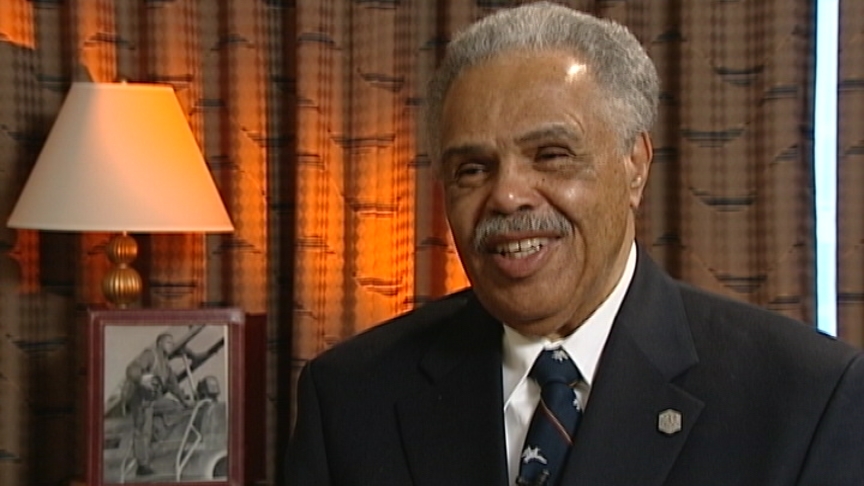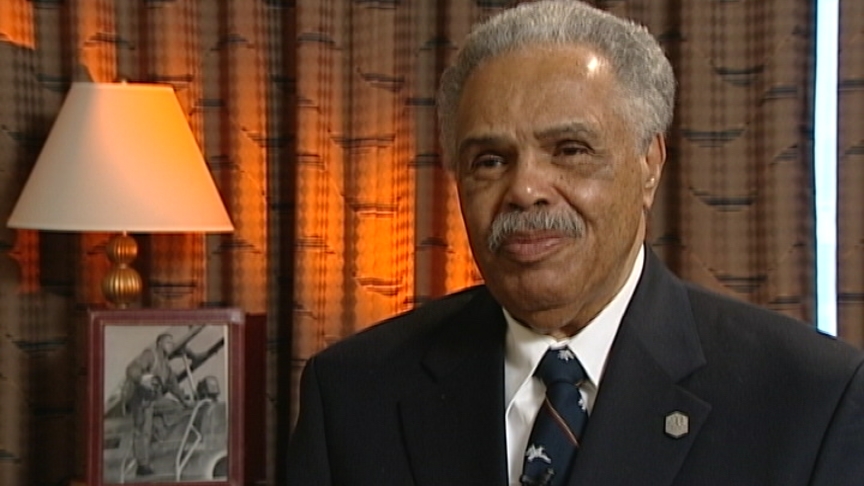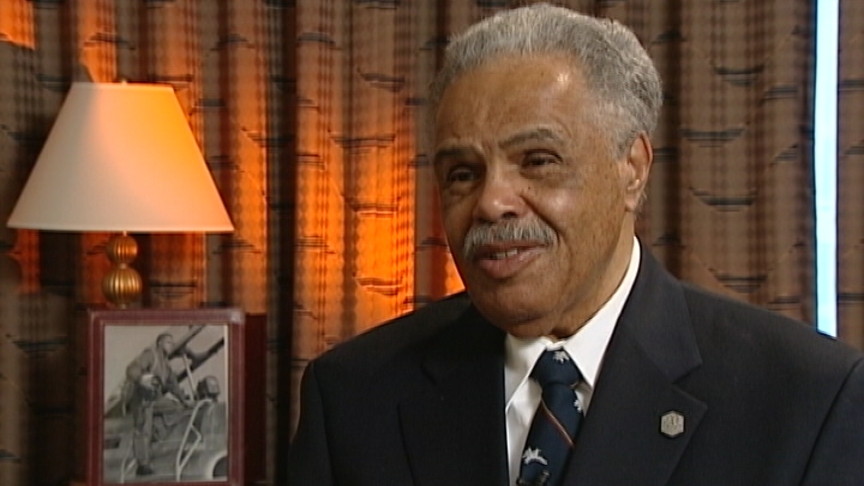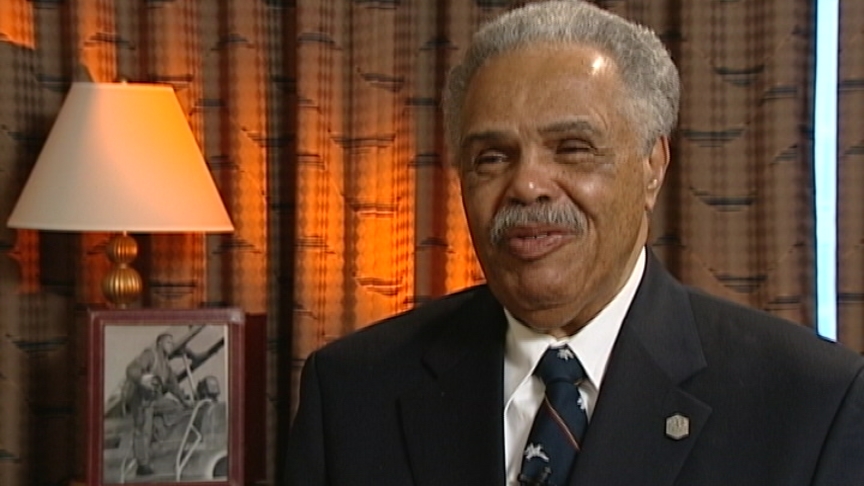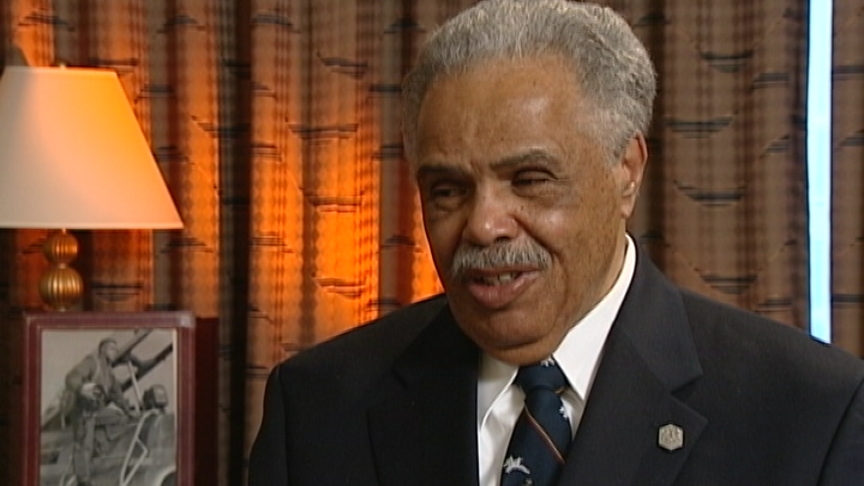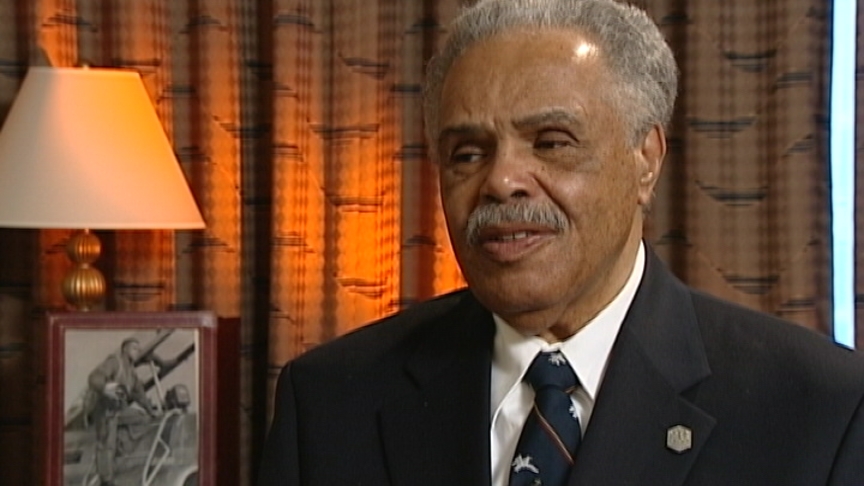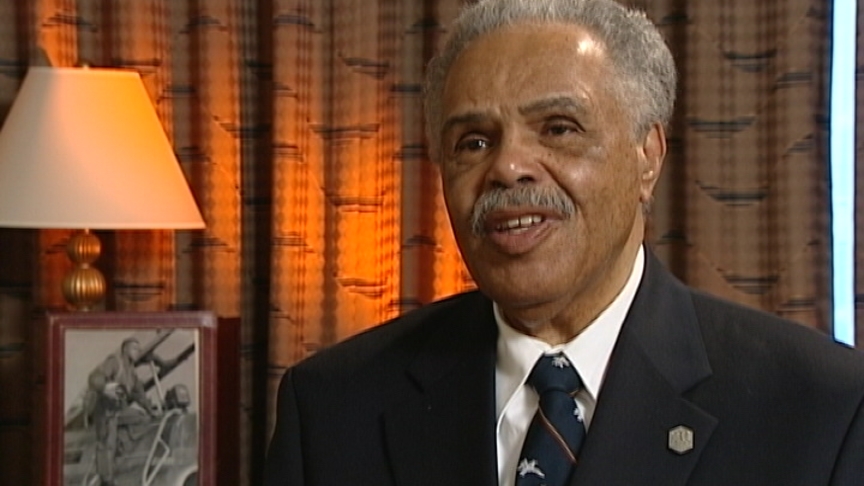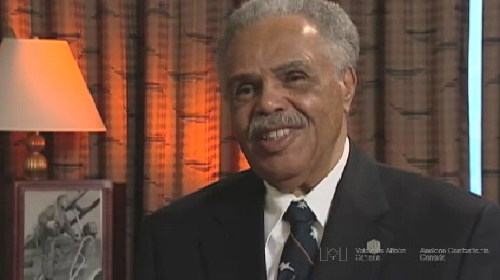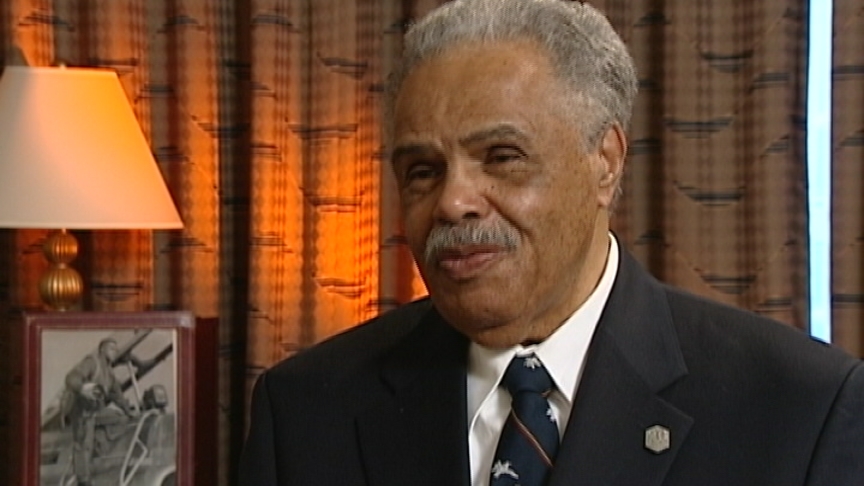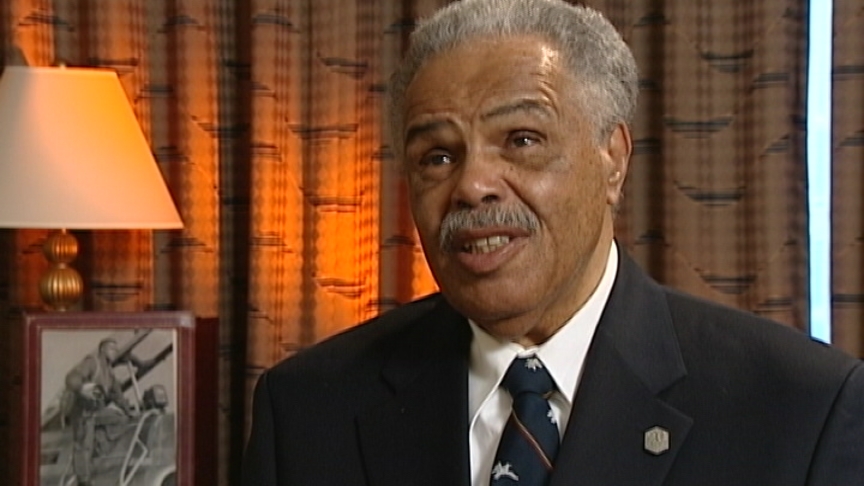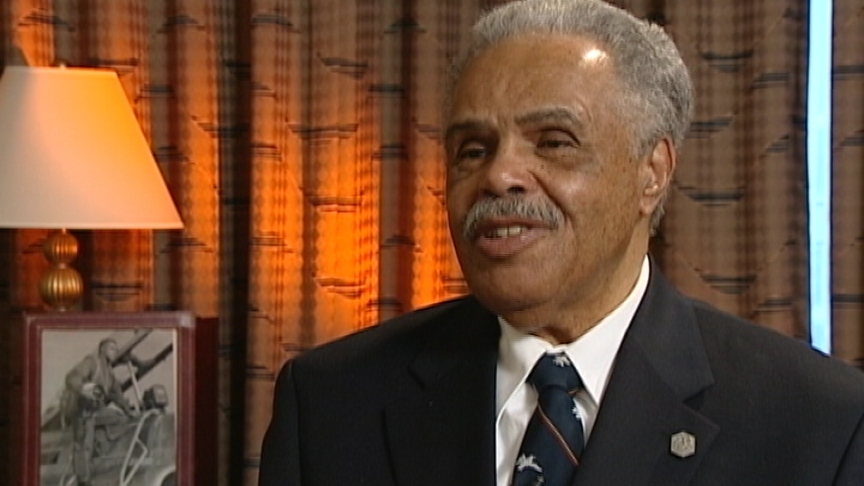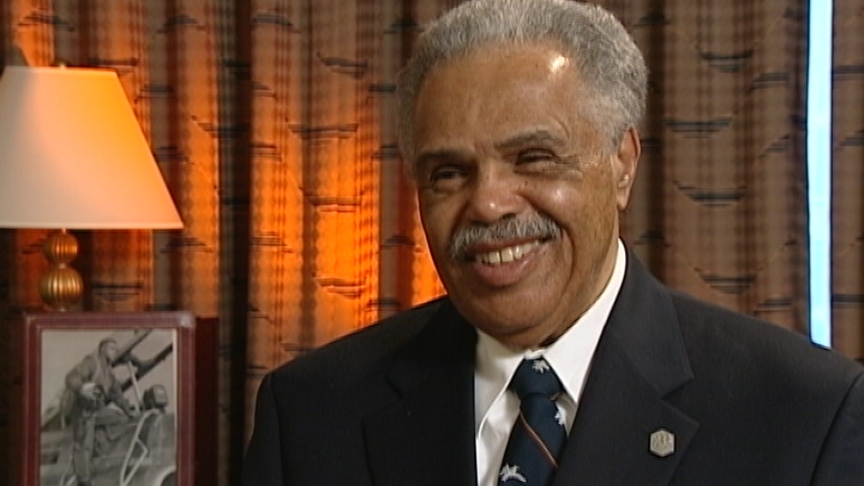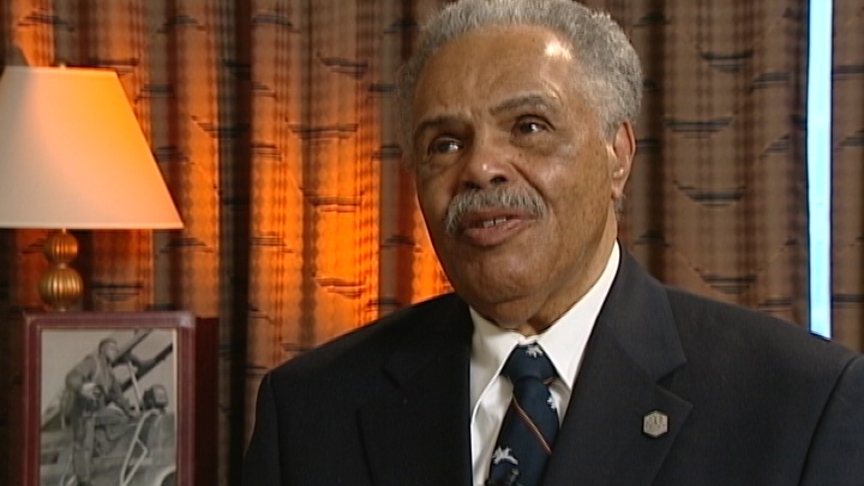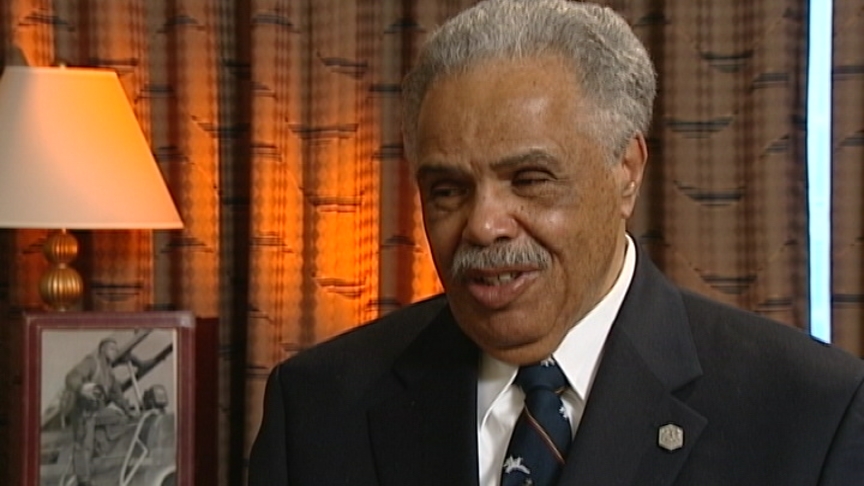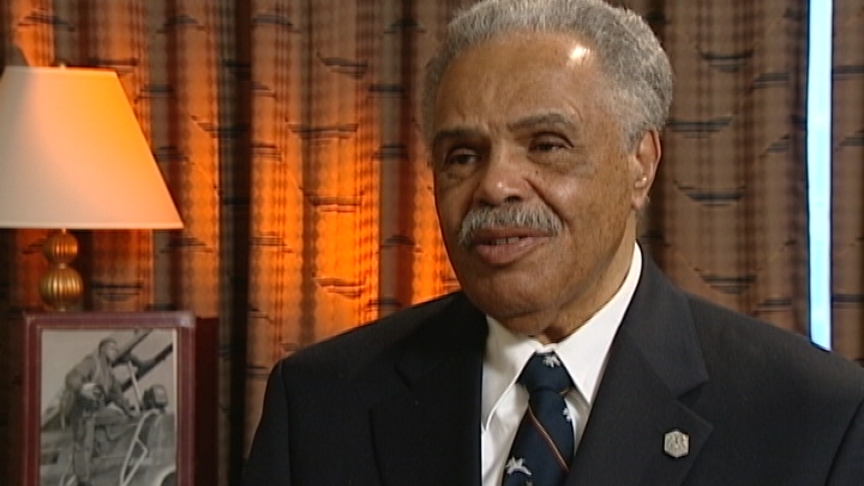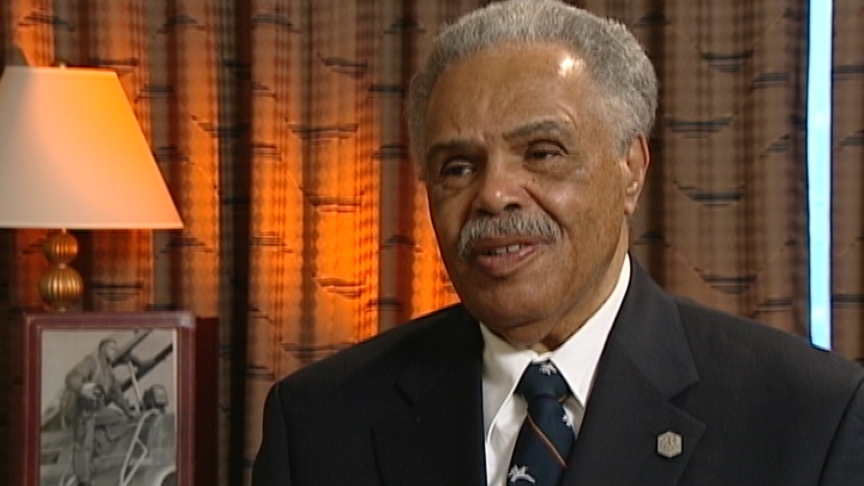United Nations Air Advisor
Heroes Remember
United Nations Air Advisor
Transcript
Description
Mr. Peters describes his role as UN Air Advisor, and helping the Security Council understand the circumstances, from a fighter pilot’s perspective, of the Russian Air Force shoot down of Korean Air flight 007.
Walter Peters
Walter Peters, the youngest of six children, was born in Litchfield, Nova Scotia in 1937. A graduate of Mount Allison University, he worked for the Canadian Mortgage and Housing Corporation before enlisting in the Royal Canadian Air Force at age twenty-four and entering pilot training. After receiving his commission and wings, Mr. Peters enjoyed a distinguished career on many levels. He was Canada’s first black jet fighter pilot and an A1 flying instructor. He was involved in the development of the Snowbirds and later flew with them. At Trenton, Mr. Peters piloted Hercules cargo aircraft on assorted missions around the globe, and it was here that he also became the Canadian Armed Forces’ first Human Rights Officer. As advisor to the United Nations Security Council, Mr. Peters offered advice on the tactical movement of troops by air, and analysed and briefed the Council after the Russian shootdown of a Korean civilian jet in 1983. He retired holding the rank of Major.
Meta Data
- Medium:
- Video
- Owner:
- Veterans Affairs Canada
- Duration:
- 2:34
- Person Interviewed:
- Walter Peters
- War, Conflict or Mission:
- Canadian Armed Forces
- Branch:
- Air Force
- Rank:
- Major
- Occupation:
- Pilot
Related Videos
- Date modified:



